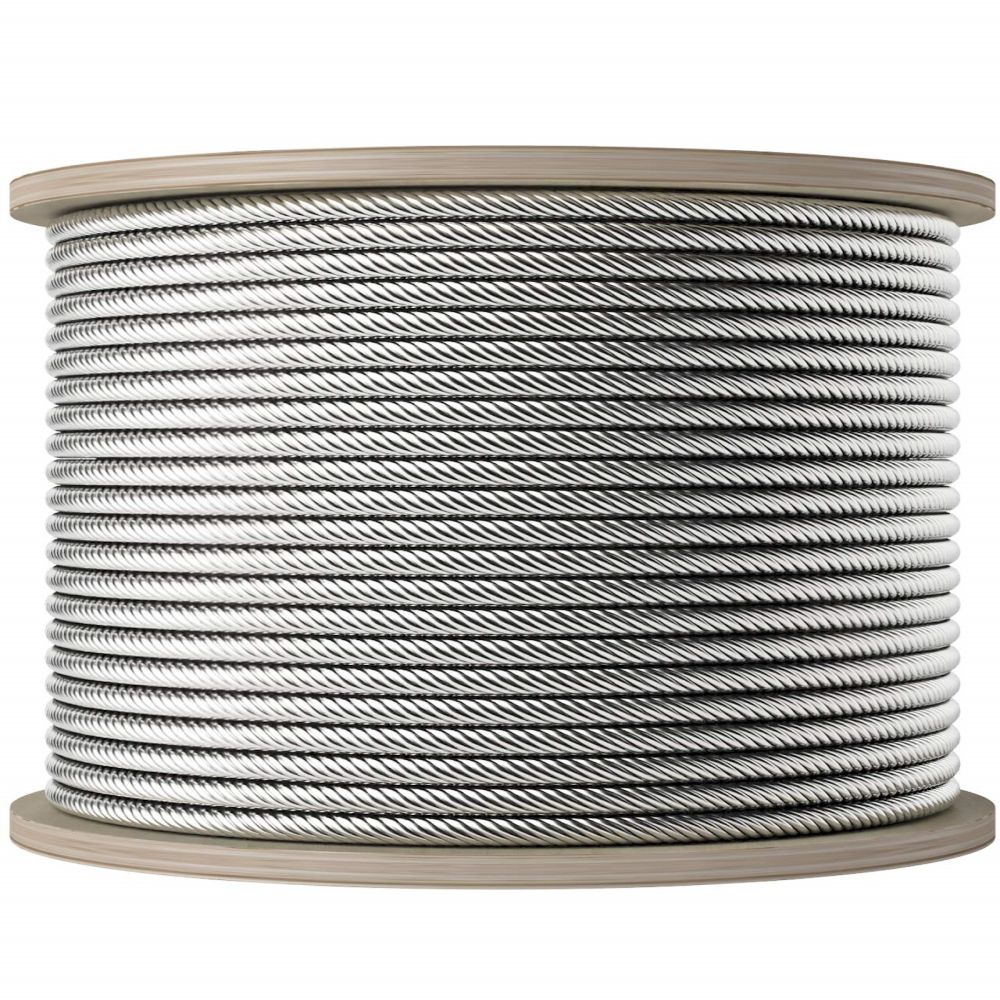
Stainless wire ropes are vital for their strength and corrosion resistance. Blogs offer insights for professionals and DIY enthusiasts on their uses and benefits. Here’s what you can typically expect to find in these blogs:
Stainless steel wire rope is made from steel alloyed with chromium, nickel, and other elements. The chromium content, typically at least 10.5%, forms a passive layer of chromium oxide on the surface, which prevents further surface corrosion and blocks rust from penetrating the material.
High Corrosion Resistance: Stainless steel offers superior resistance to rust and corrosion, even in harsh environments such as marine and industrial settings.
Strength and Durability: It maintains high tensile strength and durability, suitable for heavy-duty applications.
Aesthetic Appeal: Stainless steel has a clean, shiny appearance, making it ideal for applications where appearance is important.
Marine: Ideal for use in mooring lines, rigging, and other marine applications.
Construction: Used in architectural elements, bridges, and cranes.
Food and Pharmaceutical Industries: Preferred for its cleanliness and resistance to corrosion from chemicals and cleaning agents.
Galvanized wire rope is coated with a layer of zinc through a process known as galvanization. The zinc coating serves as a protective barrier that prevents rust from reaching the underlying steel.
Cost-Effective: Generally more affordable than stainless steel while still providing good corrosion resistance.
Versatility: Available in various sizes and configurations for different
Extended Lifespan: The zinc coating extends the rope’s lifespan by protecting it from rust and corrosion.
Applications
Construction: Used in cranes, winches, and other lifting and rigging equipment.
Agriculture: Employed in fencing, livestock management, and support structures.
Industrial: Suitable for manufacturing, mining, and material handling.
Plastic-coated wire rope involves applying a layer of plastic, such as PVC or nylon, over the wire rope. This coating provides an additional layer of protection against the elements.
Enhanced Corrosion Resistance: The plastic coating acts as a barrier against moisture and corrosive substances.
Safety: The coating can prevent injuries by covering sharp strands.
Flexibility: The plastic coating does not significantly affect the rope’s flexibility and handling.
Outdoor Use: Ideal for outdoor applications where the rope is exposed to weather conditions.
Recreational: Used in zip lines, playground equipment, and fitness structures.
Security: Employed in security cables and tie-downs.
While no wire rope is entirely immune to rust, several types are designed to offer superior resistance to corrosion. Stainless steel wire rope provides the highest level of rust resistance, making it ideal for marine, industrial, and construction applications. Galvanized wire rope offers a cost-effective solution with good corrosion resistance for a wide range of uses. Plastic-coated wire rope adds an extra layer of protection and safety, while Monel wire rope is unparalleled in highly corrosive environments. Selecting the right type of wire rope depends on the specific requirements of the application, including environmental conditions, budget, and desired lifespan. By choosing the appropriate wire rope, you can ensure longevity, safety, and optimal performance in your projects.
Stainless wire ropes are vital for their strength and corrosion resistance. Blogs offer insights for professionals and DIY enthusiasts on their uses and benefits. Here’s what you can typically expect to find in these blogs: